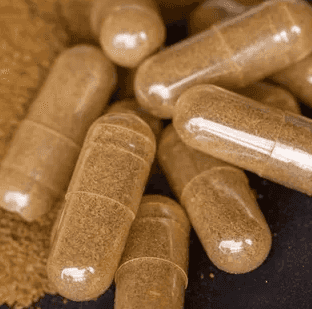
Exploring Innovative Solutions: Ibogaine for PTSD and Effective Treatment for Stimulant Addiction
In recent years, there has been growing interest in alternative therapies for mental health conditions and substance use disorders. Among these, ibogaine—a psychoactive compound derived from the iboga plant—has garnered attention for its potential in treating post-traumatic stress disorder (PTSD) and stimulant addiction. Let's delve into the promising aspects of ibogaine therapy for PTSD and explore effective treatments for stimulant addiction.
Ibogaine for PTSD: A Promising Alternative Therapy
Post-traumatic stress disorder (PTSD) is a debilitating mental health condition characterized by intrusive memories, hypervigilance, and emotional numbness. Traditional treatments for PTSD, such as psychotherapy and medication, may not always be effective for all individuals. This has led researchers to explore alternative therapies, including the use of ibogaine.
Ibogaine is known for its potent psychoactive properties and its ability to induce intense introspection and emotional processing. Some studies suggest that ibogaine may help individuals with PTSD by facilitating deep psychological insights and promoting emotional healing. By addressing underlying trauma and reprocessing distressing memories, ibogaine therapy has the potential to alleviate PTSD symptoms and improve overall well-being.
While research on ibogaine for PTSD is still in its early stages, anecdotal reports and preliminary studies suggest promising results. However, it's essential to approach ibogaine therapy with caution and under the supervision of trained professionals, as it carries risks and potential side effects.
Best Treatment for Stimulant Addiction: Finding the Best Approach
Stimulant addiction, including addiction to substances like cocaine, methamphetamine, and prescription stimulants, presents significant challenges for individuals seeking recovery. Traditional treatment approaches, such as behavioral therapy and medication-assisted treatment, may not always yield successful outcomes for everyone. As a result, researchers and clinicians are continuously exploring alternative treatments to address stimulant addiction effectively.
One promising approach in the treatment of stimulant addiction is a combination of psychotherapy and medication. Behavioral therapies, such as cognitive-behavioral therapy (CBT) and contingency management, help individuals develop coping skills, address underlying issues, and modify maladaptive behaviors associated with addiction.
Additionally, medications such as bupropion and modafinil have shown promise in reducing cravings and withdrawal symptoms associated with stimulant addiction. By targeting neurotransmitter systems involved in addiction, these medications can support individuals in their recovery journey and improve treatment outcomes.
Integrating Innovative Therapies: Exploring the Potential Synergy
While ibogaine therapy for PTSD and conventional treatments for stimulant addiction may seem unrelated, there is potential for synergy between innovative and traditional approaches to mental health and addiction treatment. For individuals with co-occurring PTSD and stimulant addiction, integrating ibogaine therapy with evidence-based treatments could offer a holistic and personalized approach to recovery.
By addressing underlying trauma and emotional distress with ibogaine therapy, individuals may experience greater readiness and motivation for engaging in traditional addiction treatment modalities. Similarly, individuals undergoing traditional treatment for stimulant addiction may benefit from adjunctive therapies, such as mindfulness practices or trauma-informed care, to address unresolved trauma and promote emotional healing.
Conclusion
Innovative therapies such as ibogaine for PTSD and evidence-based treatments for stimulant addiction offer hope for individuals struggling with these challenging conditions. While ibogaine therapy holds promise for addressing PTSD symptoms and facilitating emotional healing, it's essential to approach it with caution and under the guidance of trained professionals.
Likewise, effective treatment for stimulant addiction requires a comprehensive and individualized approach that integrates behavioral therapies, medication, and adjunctive treatments. By exploring the potential synergy between innovative and traditional therapies, individuals can access the support and resources needed to achieve lasting recovery and improved quality of life.